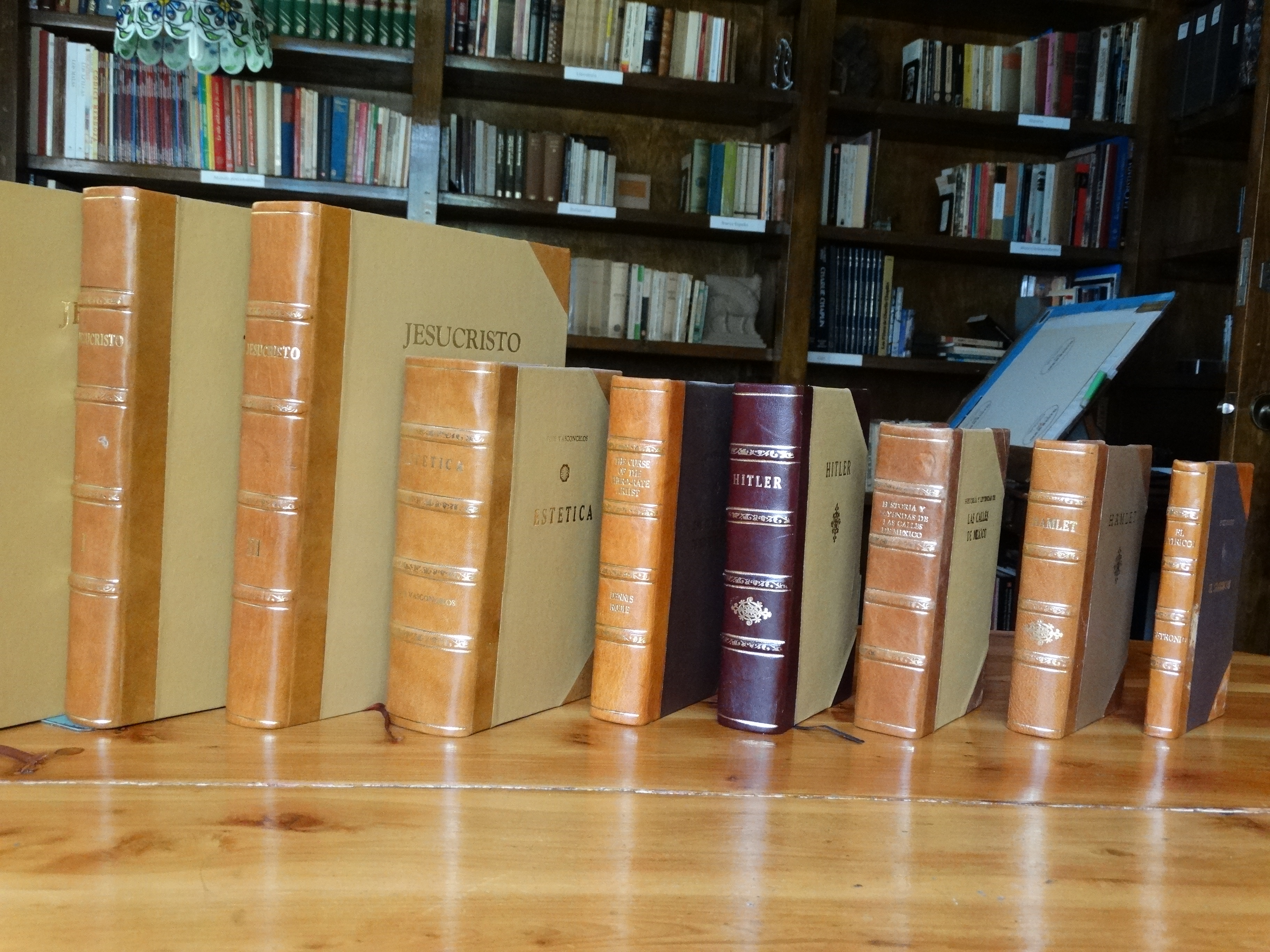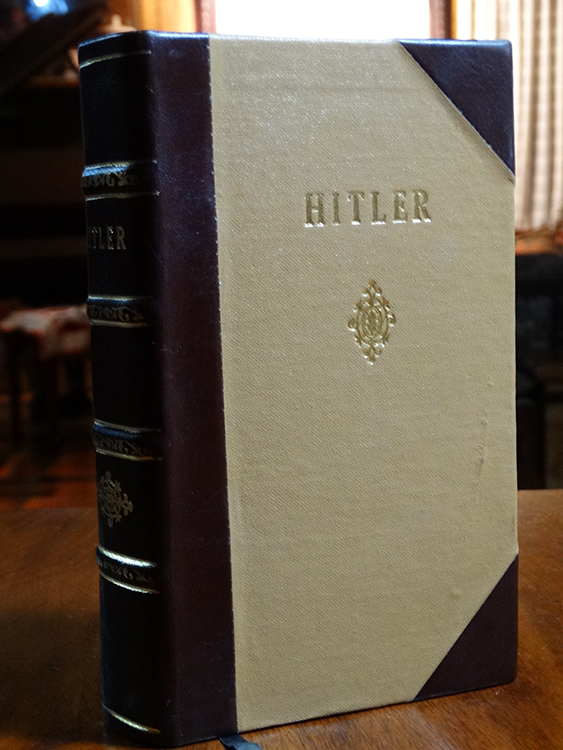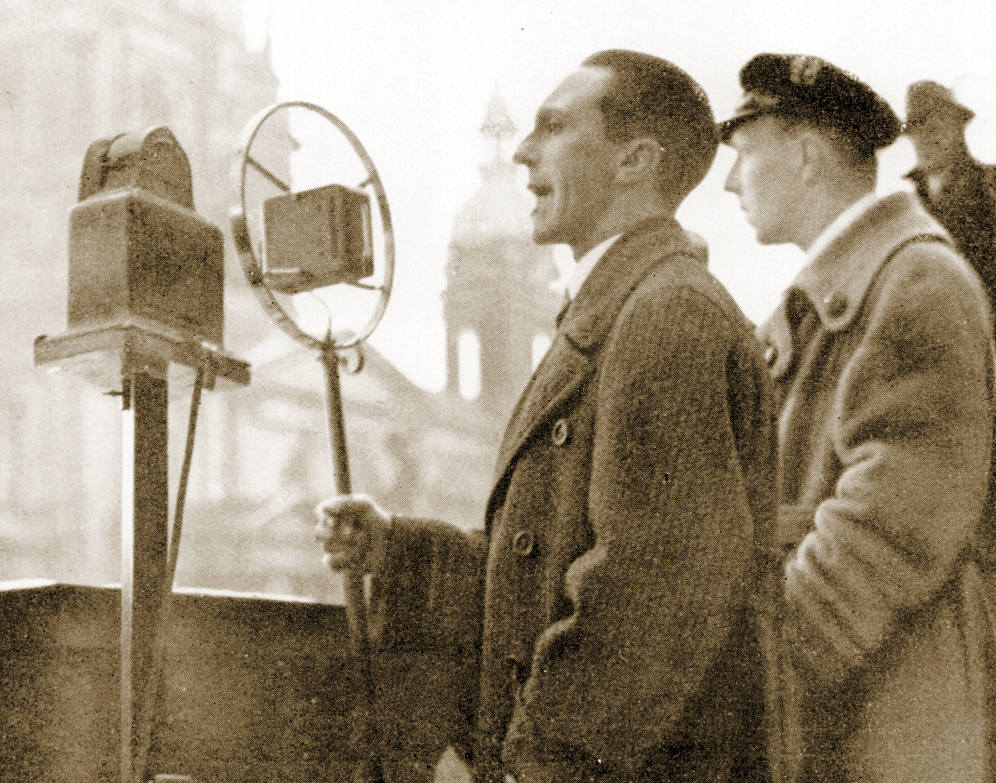I met Turner on 22 August of 2014 at The Victory Service Club in Seymour Street, close Edgware Road in London: probably the best day of my 20-day trip to the United Kingdom. It was the first time in my life that I met several white advocates of the intellectual type in a private meeting.
Just see what the Jews did to Jez recently…
Category: Free speech / association
by Ferdinand Bardamu
 Section IV: Christianity and the narrowing of the Western intellectual horizon
Section IV: Christianity and the narrowing of the Western intellectual horizon
Christians declared all-out war on the secular foundations of the Roman state. In doing so, they inevitably attacked Rome’s tradition of great art and architecture, as well as the vast storehouses of scientific and technical knowledge that had been accumulated over the centuries. Christians who desired the total eradication of paganism had nothing viable with which to replace the secular culture of the late antique world.
Many Christians, conscious of the inferiority of their own religious traditions when compared to the majestic scientific and philosophical achievements of Western culture, attacked secular learning out of envy and spite. This intellectual poverty of the Christian religion induced a significant narrowing of Western intellectual horizons. The entrenchment and consolidation of the Nicene state religious cult obviated the necessity of a classical education for worldly success. Many pursued a religious vocation instead, an option that suddenly became attractive as the Christian church increased in power and influence.
The 4th century witnessed the dismantlement of the public education system by zealous Christians, who were disgusted with the paganism of the classical academic curriculum. The Christian emperors, unlike their pagan antecedents, did not patronize secular philosophy and science; the administrative apparatus responsible for disbursement of state funds, now controlled by an ecclesiastical bureaucracy, withheld them in the case of teachers who specialized in the classics. This angered many of the last remaining pagans of late antiquity, who bitterly complained about the role of Christianity in spreading a general lack of interest in pursuing a secular education.
A man with a classical education was no longer as highly esteemed as he once was before the age of Constantine. The leaders of the empire’s most powerful institution, the church, contemptuously dismissed their learning as mere “worldly wisdom.” In the eyes of the church, reliance on the faculty of reason alone was the mark of demonic possession, a path fraught with snares for lost souls on the way to eternal damnation in the fires of hell.
This made the educated man condescending and arrogant, as well as too sophisticated for the simple message of the gospels, which he derided as a collection of childish fables. An educated man would also question Christian doctrine, even embrace heresy, making him especially dangerous from an ecclesiastical point of view. The existence of the classical curriculum posed a significant obstacle to the imperial policy of Christianization. By downgrading and marginalizing the pursuit of a secular education, the church was able to gradually eliminate this threat, producing a more docile public, like the sheep in the parables of Jesus. From now on, Christians like Martin of Tours would have more important things to do than learn how to read and write.
The final triumph of orthodoxy over reason is enshrined in the church’s canon law, which forbade clergy and laity from reading the secular literature of antiquity. This canonical prohibition was famously enforced by Pope Gregory I, who severely reprimanded his bishops for instructing students in classical literature. “One mouth cannot praise both Christ and Jupiter at the same time,” thundered Gregory from the Papal See in Rome.
The Church controlled all medieval scriptoria in Europe. Advice to monks from church leadership, ordering them to despise all secular knowledge as “foolishness in the eyes of god,” exercised a damaging influence on the scribal transmission of classical literature, merely strengthening the clerical refusal to not copy works of pagan origin. What followed was the inevitable loss of the knowledge needed to run an advanced pre-industrial society.
This only worsened and prolonged the Dark Ages, reducing Europeans to a Neolithic existence in the process. Gregory’s hatred of Rome’s secular past was so fierce he was rumored to have personally hunted down and burnt every copy of Titus Livy’s History he could get his hands on. The Library of the Palatine Apollo, first established by Augustus in Rome, was burnt to the ground on his orders. This was to protect the faithful from being contaminated by the “poison” of secular Greek and Latin literature.
Isidore of Seville was the only real “intellectual” for 200 years of western European history. His Etymologies, the most popular and widely used textbook of the Middle Ages, was written in support of Christian “fundamentalism.” Although unsurpassed in topical comprehensiveness, Isidore’s intellectual depth and range of knowledge are considerably inferior to the Roman encyclopedists who preceded him.
Isidore lived in a geocentric universe enclosed within a rotating star-studded sphere, not unlike the cosmology of the ancient Hebrews. Between the flat earth and the outer sphere are seven concentric inner spheres. The concept of infinite space was completely alien to Isidore’s way of thinking; the universe is a small place with definite boundaries. The fact that all knowledge could be summarized in a single volume shows how drastically intellectual horizons had narrowed under Christian influence. Isidore regarded all pagan science and philosophy as heresy anathema to right-thinking Christians.
The church, using the Etymologies as a guide, censored and suppressed the pagan literature quoted in its pages. Isidore further denigrated intellectual curiosity as “dangerous” and “harmful.” Isidore’s widely influential Monastic Rule warned monks of the dangers of reading pagan literature; the rule stated that ideally monks should be completely ignorant of all secular knowledge. Isidore’s condemnation of secular knowledge reinforced the prevailing “fundamentalist” orthodoxy of the church, which demanded the censorship and suppression of all pagan science and philosophy.
by Ferdinand Bardamu
 Section III: Censorship and the Christian War on Western Culture
Section III: Censorship and the Christian War on Western Culture
The ecclesiastical decision to censor and suppress classical literature was influenced by militant Christian “fundamentalists,” bigoted anti-intellectuals like Ambrose and John Chrysostom. These men, because of their prominence in ecclesiastical affairs and importance for the patristic canon, were able to aggressively push for an agenda calling for the eradication of all pagan artistic, cultural and scientific achievement. The patristic attack on the intellectual foundations of the ancient world was continued by the medieval church. Isidore of Seville, the most influential and widely read author of the Dark Ages, repeatedly warned his flock of the spiritual dangers posed by reading secular philosophy and science. The canon law of the church had long prohibited Christians from reading secular literature, excluding clergy who consulted these writings to combat heresy and paganism.
The Christianization of 4th century Rome made the church sole inheritor of the great storehouses of ancient wisdom that had been accumulated throughout the centuries. As pagans dwindled in numbers and influence, the monastic scriptoria came to dominate textual transmission, especially after 400. Guided by ecclesiastical censure and canon law, the scriptoria, with few exceptions, ceased copying secular writings for over 300 years, severing medieval Europe from the great scientific and technological achievements of the ancient past. During the Dark Ages, nearly all Greco-Roman literature was removed from circulation and replaced with patristic, biblical and liturgical writings. Works of science and philosophy, some well ahead of their time, were discarded by ecclesiastical officials as rubbish. Sometimes they were re-used for mundane purposes; relics were once found wrapped in the pages of Livy’s Histories. Italian Renaissance scholar Pietro Bembo estimated that less than 1% of all Greek literature survived the turmoil and chaos of the Dark Ages. Modern scholars have made similar estimates for the survival of Latin literature.
Christian religionists allege barbarian invasion as a significant factor in the loss of Western scientific and technical knowledge; they neglect to mention that the barbarians who terrorized the western half of the empire were also Christians. At any rate, barbarian invasion played virtually no role in the destruction of the West’s literary heritage; the majority of Greek and Latin literature was still extant by 500 AD, as the age of Germanic migration was drawing to a close. Although there is no evidence of barbarians burning books or libraries, there is an abundance of evidence implicating Christians in the active destruction and censorship of an entire civilization’s repository of secular knowledge. After the Christian destruction of the Library of Alexandria, the second most destructive act of Christian literary vandalism was the burning of over 120,000 manuscripts by crusaders during the sack of Constantinople in 1204.
Apologists for Christianity emphasize the role of economic and material factors in the disappearance of Western culture during the Dark Ages. In their view, most pagan works simply disintegrated because they were written on papyrus, a fragile material. But this is a myth; papyrus is a highly durable medium, able to withstand the centuries under the right conditions. They cannot explain why the fragility of papyrus was never an issue for the transmission of classical texts until after late antiquity, when the Christian church was at the apogee of its power and influence in Europe. Other religionists speculate that the transition from papyrus to parchment in late antiquity made the copying of pagan literature a costly enterprise. This argument fails because the relative cost of papyrus and parchment cannot be ascertained from the available sources; cost is irrelevant anyway because parchment replaced papyrus in Egypt.
The Christian religionist unwittingly reveals another mode of ecclesiastical censorship and suppression: the refusal to recopy pagan works from papyrus to parchment, which happened during the large-scale replacement of papyrus with parchment in the early medieval period. Still, and embarrassingly enough for the Christian religionist, he cannot explain why Christian writings, whether patristic, liturgical or biblical, outnumber pagan writings by a staggering ratio of 25 to 1. Only widespread Christian censorship and suppression of pagan science and philosophy can adequately account for these glaring statistical discrepancies.
Apologists say Islamic conquest of Egypt in 642 disrupted trans-Mediterranean shipments of papyrus, which resulted in the loss of much ancient literature. However, the historical record reveals that the West’s barbarian rulers, as well as the Byzantine emperor, always had access to a steady supply of Egyptian papyrus. Although Egypt came under Moslem rule, papyrus manufacture remained a Christian enterprise, with Moslems now exporting it to Europe. The irony is that, although Byzantine rulers always had access to an abundant supply of papyrus, the Greek and Roman literature in their possession still gradually dropped out of circulation and vanished from library shelves.
In the Latin-speaking West, decline in papyrus as a writing material is related to large-scale abandonment of Roman forms of government. For example, the Code Justinian contains legislation mandating the use of papyrus for government documents. In keeping with Roman bureaucratic norms, the Merovingian chancery used papyrus until the late 7th century. This practice disappeared under the Carolingians, a dynasty originating in the Germanic east. Unlike the Romanized west, which was more urban and centrally administered, the Germanic east was decentralized and rural. For these reasons, parchment gradually supplanted papyrus in Europe.
In the Christian religious mind, Irish monasteries played an instrumental role in the “preservation” of Western scientific and technical knowledge, but this is a risible claim. What work of preservation was there when over 99% of all secular writings were either destroyed or suppressed by the Christian church? There was no preservation. What did manage to survive, did so in spite of Christianity, not because of it.
That almost nothing of this literature managed to survive shows that the Christian church conducted a remarkably successful campaign of censorship and suppression, the most successful in all history. This is further reinforced by statistical data on book production from 400 to 800 AD. In the fifth century, 27% of extant manuscripts copied were pagan, with the rest being works of a largely patristic, biblical or liturgical nature; this declined to 7% in the sixth century, 2% in the seventh century and 1% in the eighth century, out of a grand total of 834 extant Latin manuscripts.
Over a 400-year period, we see classical works being gradually removed from circulation. This is a pattern indicative of widespread and systematic literary censorship and suppression. If the steep decline in the number of classical texts copied had continued uninterrupted, all pagan scientific, technical and philosophical knowledge would have vanished from memory.
Contrary to the bigoted claims of Christian religionists, we do not see “preservation.” Careful examination of the historical record reveals that the Christian church bears sole responsibility for the destruction and suppression of over 99% of Greek and Latin literature.
Christianity’s eradication of the accumulated wisdom of the ages is one of the greatest crimes ever committed against the West. No act of censorship has been more destructive in world history than the one carried out by this institution. Without the life-giving knowledge of the ancient world, maintaining an advanced pre-industrial civilization became virtually impossible. Christian censorship and suppression of secular knowledge is the main reason behind Europe’s descent into the Dark Ages after the collapse of imperial rule in the West.
Apologists foolishly condemn all criticism of the church for suppressing the technical and scientific knowledge of antiquity as anachronistic. The fact of the matter is that progress, curiosity and reason are among Europeans’ most important inheritance from the classical world. Modern Western civilization would cease to exist without these values.
The decision of the scriptoria to discard works of science, mathematics, engineering and philosophy was a complete rejection of progress, intellectual curiosity and reason. It was the rejection of civilization in favor of a prehistoric existence as the Christian ideal. As a direct result of Christianization, the scriptoria nearly ceased copying the writings of antiquity for centuries; for the first time in history, Europe was in danger of losing her ancient storehouse of scientific, technical and philosophic knowledge that would be so crucial for the Renaissance and the Scientific Revolution.
by Ferdinand Bardamu
 Section II: Christian book burning and literary vandalism
Section II: Christian book burning and literary vandalism
There was widespread, active destruction of heretical and pagan writings through book burning. Although sometimes used by pagan magistrates to destroy subversive literature, it was only during the imperially coerced Christianization of Rome that book burning increased significantly in volume and frequency. Under the Nicene state religion, book burning became a prominent form of ritualized violence against heresy and paganism. The literature that was burned was chiefly of the magical, astrological, religious, philosophical or anti-Christian variety. People had their limbs amputated for copying heretical and other banned books.
According to the book of Acts, Christianity began its campaign of active literary destruction as early as the 1st century. A group of Ephesian converts, in response to a Jewish sorcerer’s failed exorcism, gathered together their religious and prophetic books and had them burnt. This act of religious violence is spoken of with approval as an example of how god’s word spread widely, gaining influence among the people. This served as one of the chief theological justifications for the many book burnings that were carried out in Christian Rome.
Legislation that prescribed the burning of heretical and pagan, especially magical and astrological, books was enacted by Constantine in the early 4th century. These included books by Arius, the priest who denied that Christ was consubstantial with the father, and the Neoplatonist philosopher Porphyry, who wrote a book attacking the Christian religion. The pagan Library of Antioch, which contained Julian’s extensive collection of Greek and Roman classics, was burnt to the ground in 363 by the Christian emperor Jovian, an act of retaliation against Julian for replacing Christianity with Hellenistic paganism.
Imperial legislation prescribing the burning of pagan books, specifically by magicians and astrologers, is found in the Codex Theodosianus. The burning of pagan books continued into the 6th century, where it is well-attested in contemporary sources associated with the reign of Justinian. Not only were the books of heretics such as Nestorius and the Manicheans to be consigned to the flames, but also books by the hated Porphyry and other pagan critics of Christianity. The laws of Theodosius II and Valentinian, ordering their inquisitors to burn the writings of Porphyry and any pagan work judged anti-Christian, was maintained by the Codex Justinian. The Digest grants the inquisitor considerable latitude in deciding which books were sufficiently heretical, magical or anti-Christian enough to warrant being consigned to the flames.
There was a systematic and empire-wide destruction of pagan literature through book burning under Justinian. The most spectacular book burnings were carried out by Christian officials in Constantinople and Asia. Amantius, the Byzantine inquisitor, ruthlessly hunted down pagans in Antioch. He smashed their idols, burned their books and confiscated their wealth by imposing exorbitant fines. Justinian even found it necessary to ban pagans from all teaching positions in the empire. This legislation is associated with Justinian’s closing of the Neoplatonic Academy in 529, a great deathblow to secular education in philosophy and the sciences.
How successful was the church’s war on Western culture through incineration of pagan texts? The entire ancient corpus of magical, astrological and religious literature was so thoroughly destroyed that nothing has managed to survive. We have none of the many scholarly writings that could have shed light on traditional Greco-Roman polytheistic worship, such as Varro’s monumental Antiquitates rerum humanarum et divinarum.
Christian officials diligently rounded up and burnt any work of philosophy written from a materialist perspective, like those by Epicurus and his followers. The fragmentary literary remains of Epicurus, a voluminous author who published over 300 books, is due to the zealous efforts of Christian book burners. Christians also successfully eradicated all pagan literature that openly criticized the Nicene state religion on both rational and philosophical grounds.
Of the most famous anti-Christians, only fragments of their prolific literary output survive. Pagan anti-Christian writings were considered so dangerous that even their Christian refutations had to be incinerated along with them. Of the anti-Christian works that bothered Christians the most, Porphyry was repeatedly singled out by imperial legislation for burning, followed by Julian’s diatribe against the “Galileans.” We know that many pagans wrote against Christianity, but the fact that barely any of this literature survives is a clear indication that what Christianity could not dispel through reasoned argument, it silenced through brute force.
The monastic scriptoria played a major role in the church’s eradication of all secular knowledge. The monks would recycle parchment from secular manuscripts by scraping off the ink with a mild acidic solution; a “washed” parchment was then re-used for the copying of Christian manuscripts. This was subsequently known as a palimpsest. For centuries, manuscripts overwritten with patristic, biblical and liturgical texts were almost always of pagan origin.
The systematic destruction of classical literature somewhat abated by the eve of the Carolingian “Renaissance,” but the secular writings of antiquity were still far more likely to be destroyed by Christians than any other body of literature.
That this was the case is further demonstrated by examination of the ratio of classical to Christian manuscripts. When extant manuscripts are considered, the ratio is 1:25 or 4%. A 7th century copy of the Vulgate, for example, is listed by Codices Latini Antiquiores (CLA) as a palimpsest with sheaves pilfered from the manuscripts of 9 different classical authors, including Livy, Cicero, and Seneca. Given the 4% ratio, the statistical likelihood of so many classical authors being used for a single manuscript because of fortuitous circumstance is so remote it borders on the impossible. This is made even more improbable given the fact that the libraries of the late antique and medieval periods were typically stocked with patristic, biblical and liturgical writings. The Vulgate manuscript would never have been assembled unless the church was deliberately targeting the ancient cultural patrimony of an entire civilization and people for systematic eradication.
The most notorious—and the most destructive—act of Christian cultural genocide was the deletion of Archimedes’ mathematical treatises. In their place was found a Byzantine liturgical manual. This is known as the famous Archimedes palimpsest. The most important of these manuscripts, the Method of Mechanical Theorems, reveals that Archimedes had a rudimentary understanding of the integral calculus; he was the first to calculate the area and volume of solid geometric figures using infinitesimal magnitudes. This was some 2000 years before Newton and Leibniz, the modern discoverers of the integral and differential calculus. If Christianity had not retarded scientific and technological development in ancient and medieval times, mankind would be far more advanced than he is now. Christianity was the single greatest impediment to material progress in the history of Europe.
Christians actively destroyed the writings of classical antiquity under the delusion that they were sanctifying a text formerly under demoniacal influence and reclaiming it for god. They believed that everything that had happened in the past was a mistake. Eradicating ancient civilization would reduce Europeans to a prehistoric existence, but it would free them from all worldly attachment. It would allow Europeans to focus exclusively on the redeeming work of god in Christ, the crucified Jew whose triumph over reason ushered in the Dark Ages.
I’m sick of censorship. After Lulu, Inc. closed my account last year, these days I had everything ready to publish The Fair Race’s Darkest Hour at Amazon’s CreateSpace. But yesterday I received an email from the latter saying that they have suppressed the book from my account.
Outside Lulu and Amazon, I do not know of another press that makes print-on-demand books. Let it be clear that my purpose is not to make money, but to awaken some Aryan males from the matrix that controls them; and it seems to me that extensive books, which require meditation, should have a publishing house.
 I have tried to contact Noontide Press to see if their house could host The Fair Race. However, since the essays in this book represent the cream of this site, I am tempted to leave a free link to the PDF of it.
I have tried to contact Noontide Press to see if their house could host The Fair Race. However, since the essays in this book represent the cream of this site, I am tempted to leave a free link to the PDF of it.
That sticky post would work like the masthead of The West’s Darkest Hour. In addition, a PDF has the advantage of being able to be printed at home for comfortable reading—although there is nothing like a printed book in our home library.
Thoughts?
Hypocrite Peterson
https://youtu.be/Zb1EuGTa5BA
Note of February 15: YouTube nuked this account. Still can be viewed here:
https://www.bitchute.com/video/kLQ0XFkc3zGy/
Jared vs. Jew
 After minute 36 of this video this Israeli journalist, Nitzan Horowitz, tells Jared Taylor that his Jewish relatives living in the US, and even he himself, would ban Taylor’s race realism! No freedom of speech in America for such ideas!
After minute 36 of this video this Israeli journalist, Nitzan Horowitz, tells Jared Taylor that his Jewish relatives living in the US, and even he himself, would ban Taylor’s race realism! No freedom of speech in America for such ideas!
Very interesting interview to gauge the Jewish mentality, including the other Israelis who also reacted angrily to Taylor (and spoke among themselves in a foreign language).
As a Priest of the 14 words, I would never engage a Jew in such matters. Remember our code: ‘Speak only to Aryan males’.
Note of November 25, 2017: I’ve just changed the title of this article from “available again” to “unavailable as hard copy”. However, this site hosts a PDF of the book that can be printed in your home (see sidebar). Below, the original post:
______ 卐 ______
It now seems that Lulu Press Inc. vaporised my account because James Mason’s Siege was selling well. I deduce this because Storefront Books’ Lulu account was also ‘vaporised’ (an Orwellian term). Of course: The social media, mostly companies led by Jews, are inventing politically-correct laws of their own. In America the PC enforcer is not a government that still maintains First Amendment rights. For example, the 1969 Brandenburg v. Ohio allows talking seriously about revolution unless you’re already promoting immediate use of violence, call for arms, etc. Therefore, Siege should be legal in the US.
I didn’t receive any warning about the vaporisation. Had I received it I’d have saved the PDF of the English-German translation of Hunter that only my Daybreak published (I hope a German friend has kept his backup copy safe!). Also, had I received a notice of the termination I’d have written down the stats of how many copies Lulu sold of my books in Spanish since 2011 (of which Day of Wrath is only a selection in English). Now I will never know.
In the novel 1984 vaporisation of people occurs without any warning. If my WordPress account that hosts the present site is vaporised you still can find me through my Wikipedia user page. As you can see, the last words of that page say, ‘So I moved on, outside the wiki’ linking to a quotable quote in this site. If my WP account is abruptly terminated in the future, the italicised words above will be linked to my new address of The West’s Darkest Hour.
In the previous post ‘Daybreak partner?’ I said I’d visit my traditional bookbinder. We talked last Saturday and he showed me his equipment. Now I know an approximation of what it would cost me to obtain a similar set to print books at home. For the moment I cannot afford it but I must sincerely thank our overseas sponsor whose generous contribution has allowed me to get sufficient toner cartridges to print whole books (and then take the ordered stack of paper sheets to my bookbinder).
For the moment the books he and I will manufacture will look like this:
 Only if the business flies we may add, in the future, dust covers for these hardcover books. Incidentally, I have changed the colour and title of my ‘Addenda’ page to ‘Daybreak Publishing’ and will be modifying the page in the coming days.
Only if the business flies we may add, in the future, dust covers for these hardcover books. Incidentally, I have changed the colour and title of my ‘Addenda’ page to ‘Daybreak Publishing’ and will be modifying the page in the coming days.
My hunch is that only Siege will be censored if I request the services of another print-on-delivery company to host my Daybreak books. So I’ll keep the making of Mason’s great book exclusively for the shop (see: here).
But I guess other books won’t be censored. The Fair Race’s Darkest Hour for example has not made a single bleep in the PC radar, so I am prepared to take a chance in opening an account elsewhere for most of my Daybreak titles.
Any recommendation for another print-on-delivery service now that Lulu has failed us?
Further to ‘Lulu has deplatformed me’. Yesterday I phoned my traditional bookbinder. Before I used the services of Lulu this man used to assemble a stack of paper sheets of my Hojas Susurrantes. I made an appointment with him for tomorrow to ask prices of bookbinding equipment.
Yesterday I also accompanied a family member for a long queue at the hospital and brought with me a copy of Rockwell’s This Time the World. The available edition of this book at Amazon Books is of poor quality, both the covers and the lack of care in the formatting of the interior. Just for carrying it to the hospital and reading it there, the covers bended making an outward curve that denoted the poor quality of the cover.
 This is a copy The Turner Diaries I requested to assemble. I was outraged that the paperback copies of Pierce’s immortal novel available through Amazon were marred by a politically correct preface of someone who excoriated the content. So dismayed that I tore off the soft cover and the insulting preface and took it to the shop. Now it’s one of the books I can treasure of my personal library.
This is a copy The Turner Diaries I requested to assemble. I was outraged that the paperback copies of Pierce’s immortal novel available through Amazon were marred by a politically correct preface of someone who excoriated the content. So dismayed that I tore off the soft cover and the insulting preface and took it to the shop. Now it’s one of the books I can treasure of my personal library.
We need a homely way of publishing hardcover books that may be sold as print-on-delivery services. Wouldn’t it be nice to have a handsome edition of the excerpted translation to English of Deschner’s first volume of Kriminalgeschichte des Christentums once I finish it by the end of the year?
 With the proper equipment we could even make deluxe editions. This for example is my copy of Mein Kampf assembled with the same tools of the bookbinder I’ll visit tomorrow. Other colours are possible. He also assembled a copy of Esau’s Tears which comercial cover I had torn off. (Incidentally, that book recounts how the subversive tribe took over the presses in Europe throughout the 19th century.)
With the proper equipment we could even make deluxe editions. This for example is my copy of Mein Kampf assembled with the same tools of the bookbinder I’ll visit tomorrow. Other colours are possible. He also assembled a copy of Esau’s Tears which comercial cover I had torn off. (Incidentally, that book recounts how the subversive tribe took over the presses in Europe throughout the 19th century.)
Of course: the shop can also assemble my books in Spanish that I had printed at home. Presently I use Garamond font with #12 size-letters for a comfortable reading. Royal size for long books or standard size for shorter books seem reasonable to me.
We must not let the Jews monopolise the press, let alone our classics! Deplatforming is only possible because of Jewish monopoly over the publishing houses. While the homely Noontide Press in the US and Ostara Publications in the UK are doing well in softcover format, those books of paramount importance merit hardcover editions that may last for generations in our family libraries.
If someone wants to be a partner in Daybreak Publications to allow me purchase the equipment, in addition to sharing revenues he will also choose the best titles for the collection. Meanwhile I must limit myself to pay the services of my traditional bookbinder to assemble the books that still appear on the sidebar and send them internationally trough mail to those interested in obtaining a copy of any of them.
